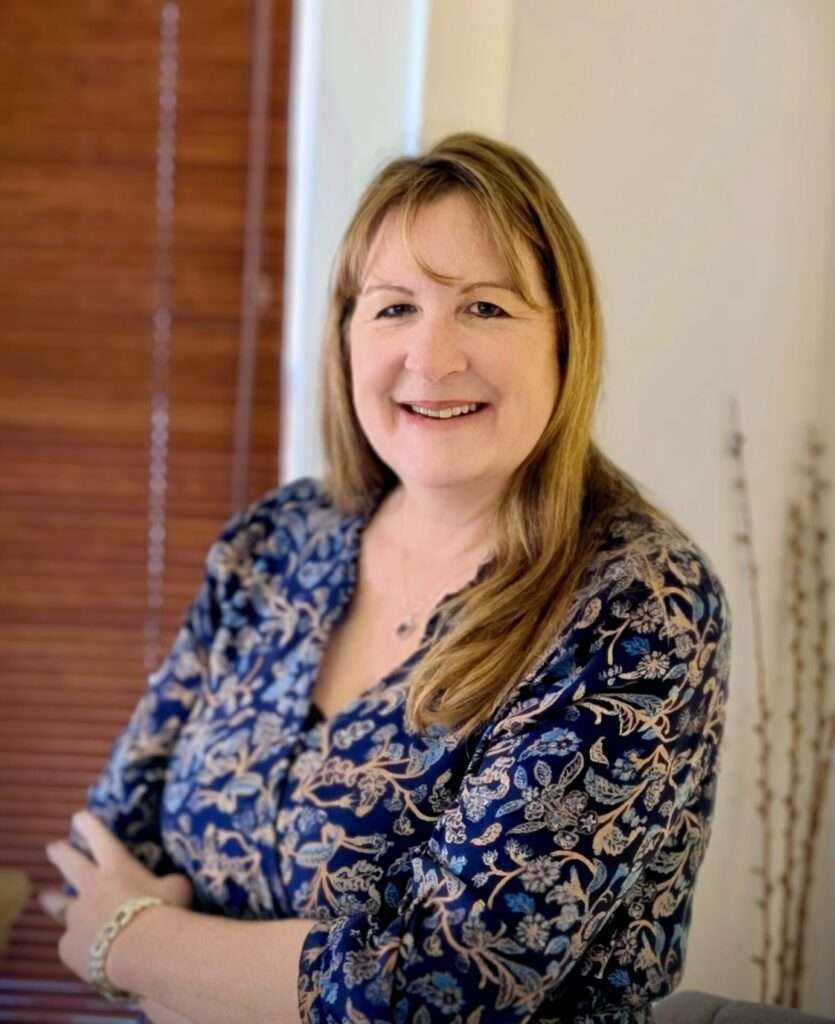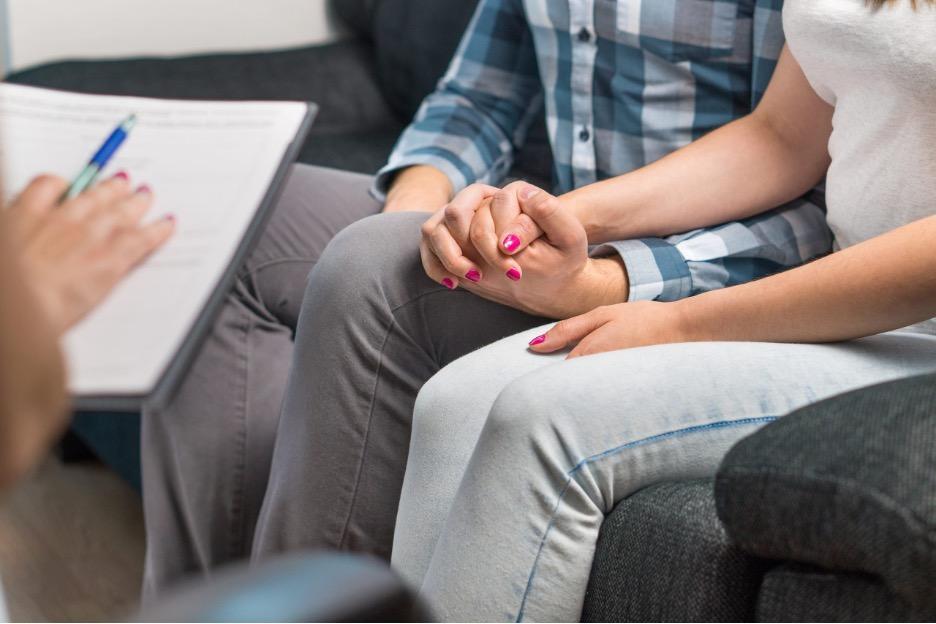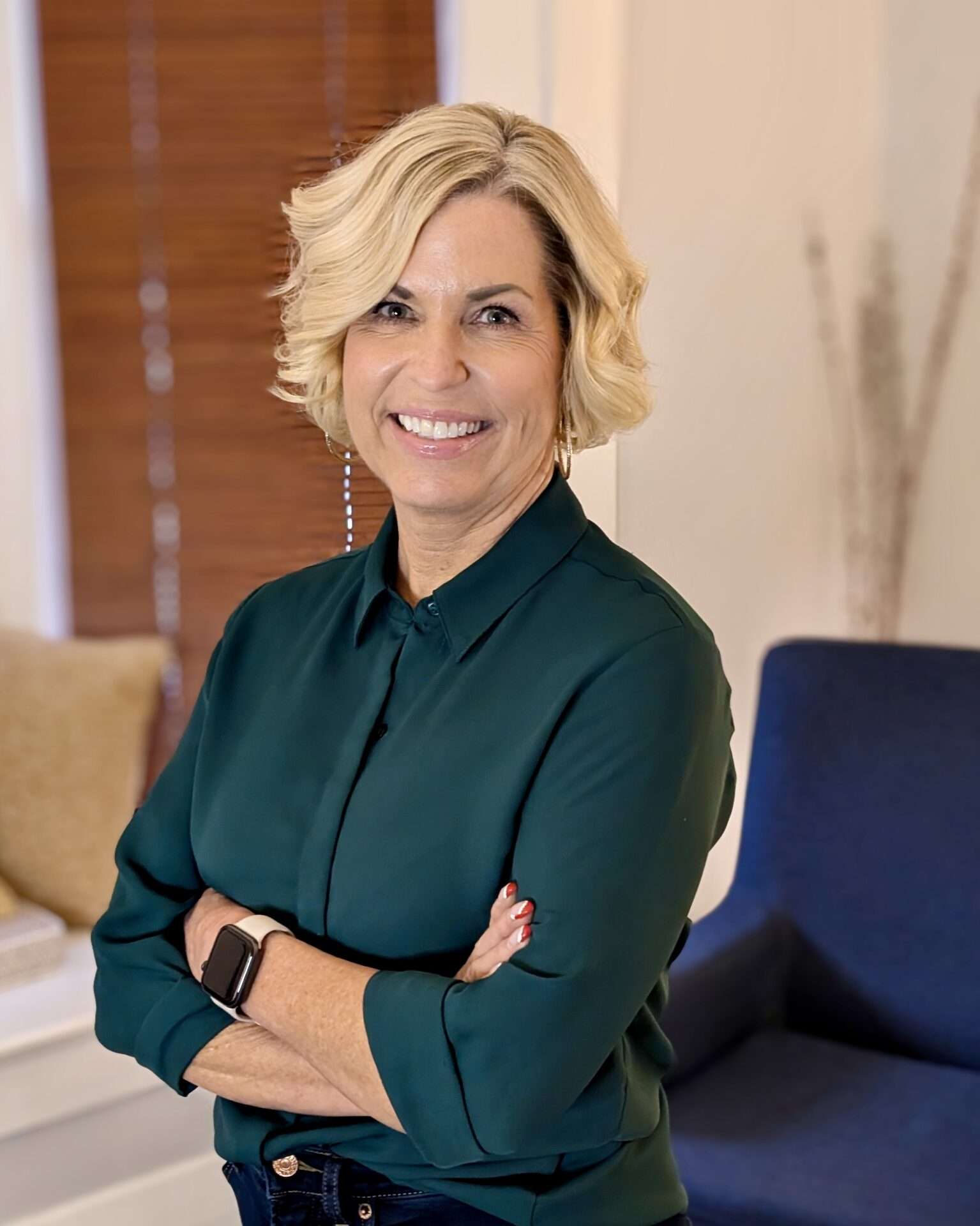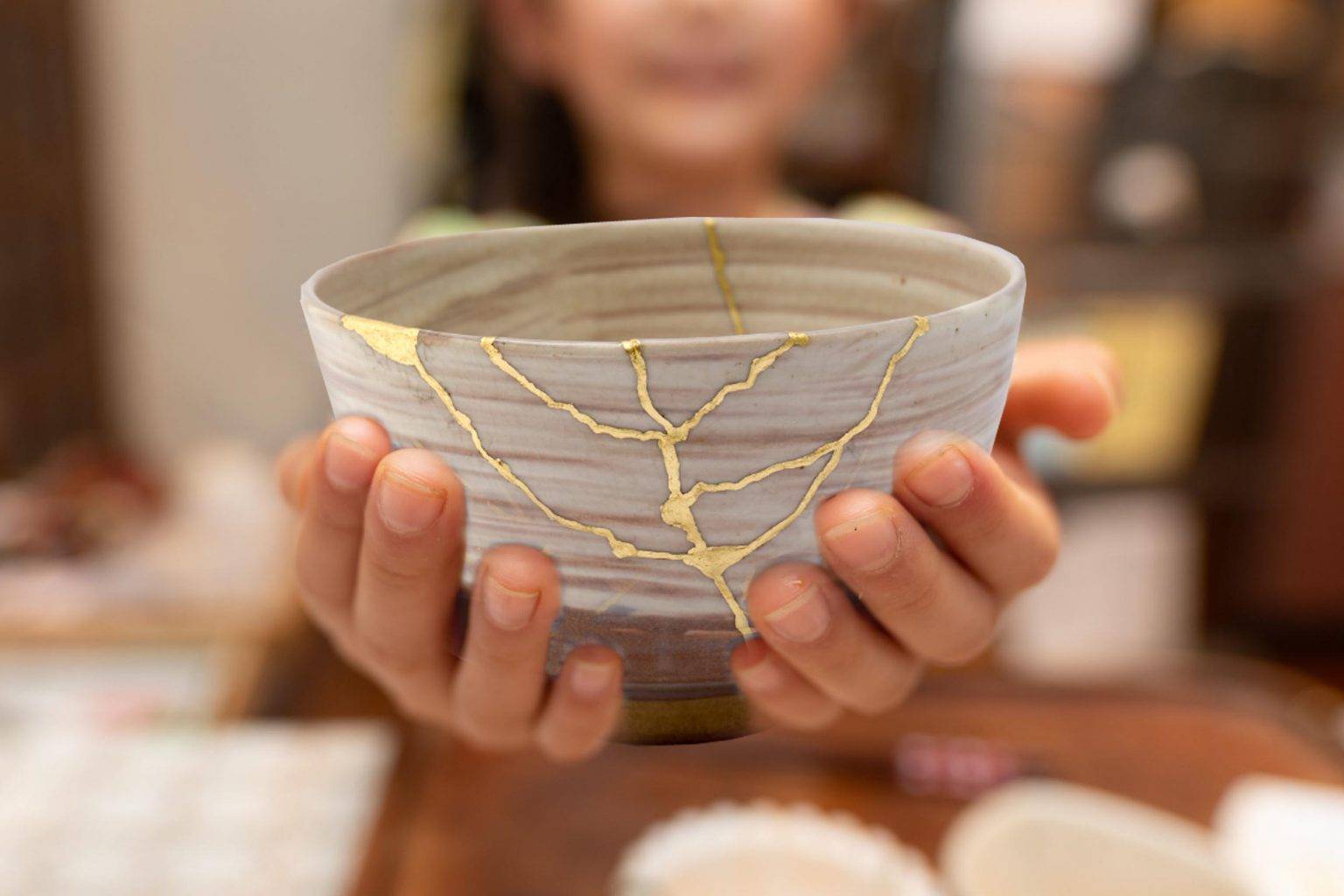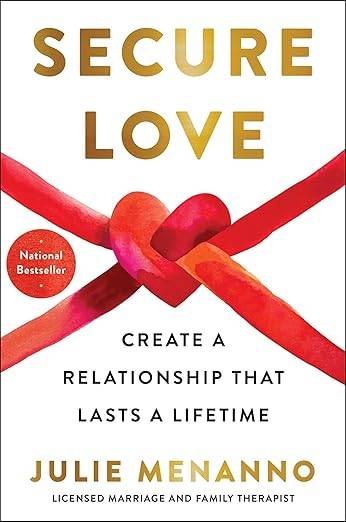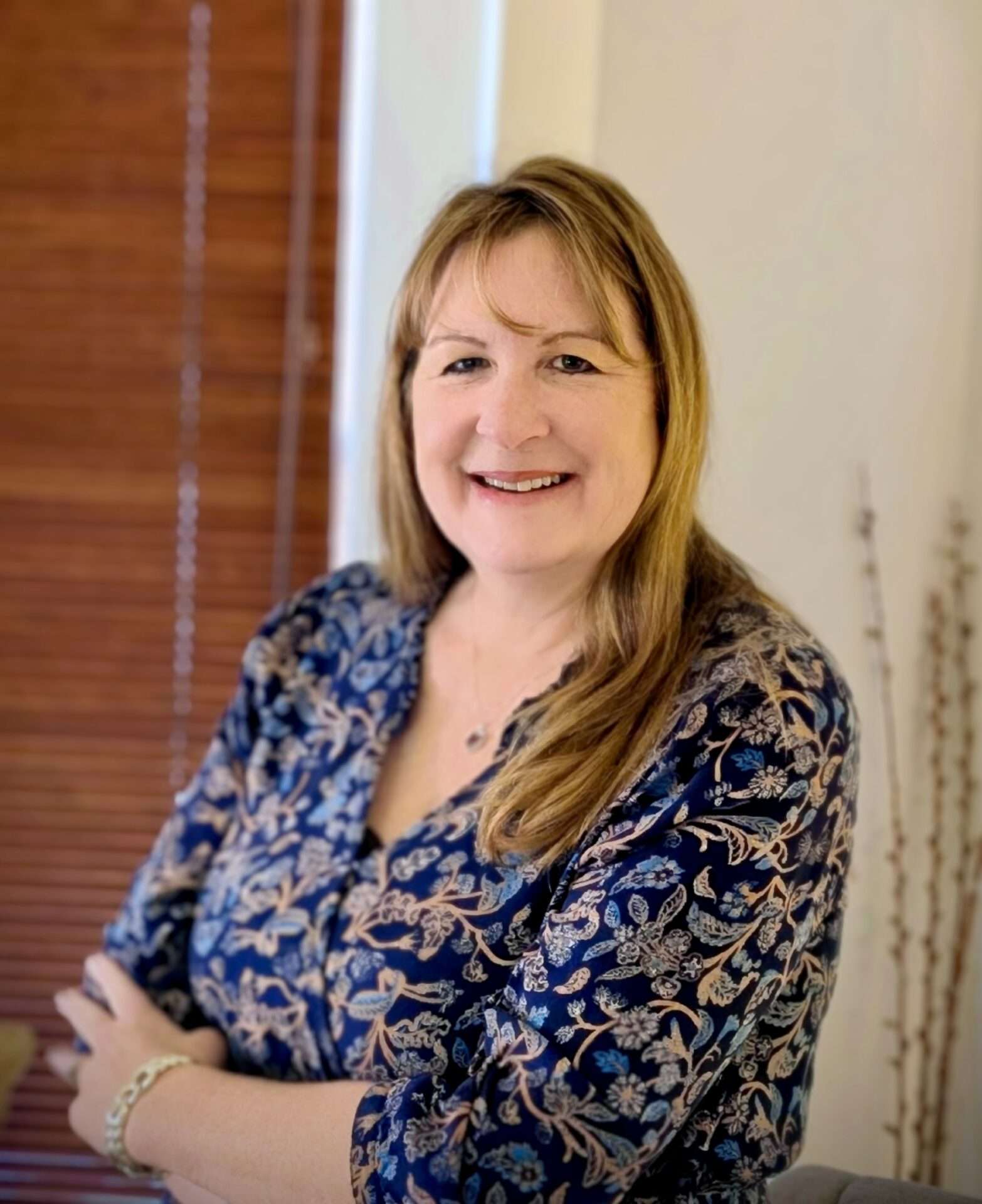Blog Articles
When Couples Therapy Makes Things Worse: Why Some Approaches Fail—and How EFT Gets It Right
Does Marriage Counseling Work? It Depends…
Introduction:
I read a forum post recently where the author was gathering opinions about, “does marriage counseling work?” My internal voice was, “well of course it does!!” But this isn’t always true: it depends on a number of factors. In this article I’m speaking to couples who are wondering whether marriage counseling works, and perhaps more importantly, whether it will make things worse. After all, if things are bad then at least doing nothing isn’t likely to make them worse, right? This is why I said, “it depends” in the subtitle.
In my years as an Emotionally Focused Therapist, I’ve had the privilege of guiding many couples through meaningful change and growth in their relationships. I’ve seen many couples reconnect and rediscover love and trust with EFT. However, I’ve also encountered situations where well-intentioned therapeutic interventions had inadvertently made existing challenges worse. Here’s an example:
I recall one couple, I’ll call them Sarah and Mark, who sought my help after months of behavioral-based couples therapy. They were nearing the end of their rope, their communication patterns mired in blame and defensiveness. Mark felt unheard and unaccepted, while Sarah felt unimportant, like she didn’t matter to Mark the way she had earlier in their relationship. Their previous therapist (8-sessions) had focused on instructing them regarding communication techniques, but this only seemed to intensify their conflicts. Each new “technique” became another tool for discord. Conflict began to center around who was at fault for not following the therapist’s instruction. They were feeling hopeless when I met them. They were also feeling sort of, “like a couple of frauds,” as they put it, because friends and acquaintances considered them an ideal couple.
Sarah and Mark’s experience is unfortunately not uncommon. Many couples enter therapy seeking support, only to find themselves feeling more disconnected and discouraged. Our local Reno therapists, Individual & Relationship Counseling Associates, understand this potential risk.
The Challenges of Traditional Marriage Therapy
Often, traditional couples therapy can become mired in continually identifying problems and assigning blame. As Sue Johnson, the pioneer of EFT, aptly observes, “Many couples come to therapy talking about communication problems when what they really need is help with the underlying emotions driving those problems.” (1)
Instead of fostering understanding and connection, this approach can leave couples feeling increasingly isolated and misunderstood. John Gottman, a leading researcher on marital stability, echoes this concern: “Most couples therapy focuses on changing behaviors, but what really needs to change is the emotional connection.” (2)
Specific challenges of traditional couples therapy models include:
- The Blame Cycle: Some approaches inadvertently encourage partners to focus on each other’s perceived flaws, fostering criticism and defensiveness, which can further erode their bond.
- Surface or Content-Level Focus: Traditional therapy may get caught up in the content of arguments, overlooking the deeper emotional needs fueling those conflicts. This is akin to addressing symptoms while neglecting the underlying cause.
- Neglecting Attachment Needs: Humans have an innate need for connection. When these needs are unmet, we often react with fear, anger, or insecurity. Traditional therapy may not always address these fundamental needs, leaving couples feeling alone and unsupported.
- One-Size-Fits-All Solutions: Many therapists rely on standardized techniques and interventions that may not resonate with the unique dynamics of each couple. This can lead to frustration and a sense of being misunderstood.
Does Marriage Counseling Work? EFT: A Path to Emotional Safety and Connection
Emotionally Focused Therapy (EFT) offers a different path. It recognizes that conflict is often a cry for connection, a desperate attempt to get our partner’s attention and feel loved and secure. In simple terms, Emotionally Focused Therapy (EFT) for couples is a roadmap to understanding and healing the emotional wounds that cause conflict in your relationship.
EFT guides couples through a process of:
- Uncovering Hidden Emotions: EFT helps you and your partner identify and express the deeper emotions that are often hidden beneath the surface of your arguments. These emotions might be fear, hurt, loneliness, or feeling unloved. Once these emotions are out in the open, you can start to make sense of them and address them.
- Creating a Safe Space: Your therapist will create a safe and supportive space where both of you can feel comfortable sharing your emotions without fear of judgment or criticism. This safe space is crucial for healing and building trust.
- Understanding Your “Dance”: EFT therapists help you recognize the negative patterns or “dances” you get stuck in during conflicts. These patterns often involve one person pursuing connection and the other withdrawing. Understanding this dance helps you break free from it.
- Changing Your Steps: With the therapist’s guidance, you’ll learn new ways to respond to each other’s emotional needs. This involves expressing your own needs more clearly and responding to your partner’s needs with empathy and understanding.
- Building a Stronger Bond: As you learn to communicate more openly and connect on a deeper emotional level, you’ll start to feel closer and more secure in your relationship. Trust and intimacy will grow, and you’ll be better equipped to handle challenges together.
Does Marriage Counseling Work? Only if it gets to the root of distress
Think of EFT like learning a new language – the language of emotions. Instead of speaking in accusations and criticisms, you’ll learn to express your needs and feelings in a way that your partner can understand and respond to. This new way of communicating can transform your relationship from a battleground into a safe haven.
It takes time and effort to change deeply ingrained patterns. I saw this positive change unfold with Sarah and Mark. As we delved into their deeper emotions, they began to understand the pain and fear that fueled their conflicts. Mark realized that Sarah’s criticism stemmed from a fear of abandonment, while Sarah recognized that Mark’s withdrawal was a way of protecting himself from feeling hurt. As they learned to express their needs more vulnerably and respond with compassion, their relationship began to heal.
Very importantly, when Sarah and Mark found themselves stuck in their negative pattern at home, they had a strategy. They were able to slow things down and realize they were bogged down. This gave them an opportunity to regroup and talk in more emotionally vulnerable terms. Specifically, to describe how their respective criticism and defensiveness were reactions to feeling disconnected and misunderstood.
Conclusion:
Does marriage counseling work? Couples therapy can be a valuable tool for healing and growth, but only when it addresses the root of the problem: the emotional disconnection that drives conflict. Emotionally Focused Therapy (EFT), as offered by practices like Individual & Relationship Counseling Associates in Reno, offers a roadmap for couples to navigate their emotional landscape, heal old wounds, and create a more secure and loving relationship. If you’re considering couples therapy, choose wisely. This article outlines questions you might ask a prospective therapist. Your relationship is worth it.
Citations:
(1) Johnson, S. M. (2004). The Practice of Emotionally Focused Couple Therapy: Creating Connection. Brunner-Routledge. (2) Gottman, J. M., & Silver, N. (2015). The Seven Principles for Making Marriage Work. Harmony.
Starting Couples Therapy? What to Expect in Your First Sessions
What to Expect in Couples Therapy: A Path to Clarity and Healing
If you and your partner are considering couples therapy in Reno, you might wonder what to expect. Will it help? How does it work? This article gives you a practical overview of how couples therapy—especially Emotionally Focused Therapy (EFT)—can support your relationship. EFT is a highly researched, effective, and non-judgmental approach that helps partners reconnect, communicate, and heal. Learn more about Emotionally Focused Couple Therapy here.
Expect Respect and Honoring of Your Values
Very importantly, you will be met with respect for your personal and shared views and values. Our therapists have expertise in helping couples experience reaching to one another in a heartfelt, connected way. But we are humble, because you are the expert in your unique relationship and what you want for it. In this sense, we’re like highly-trained consultants helping you move toward your goals. Our therapists will guide, advise and direct- but they will never tell you what to do.
You should never feel judged or “ganged up on.” My colleagues and I continually monitor our working alliance with you. It’s critical for us to know and make a correction when one of our clients doesn’t feel like we’re getting them.
What Is Emotionally Focused Therapy for Couples?
EFT is a type of couples therapy grounded in the science of attachment, which describes how we bond with one another. Attachment science also describes what can happen when bonds rupture. It’s based on the idea that emotional connection is key to feeling accepted and cared for, and this in turn leads to lasting, fulfilling relationship. During EFT sessions, we’ll work together to identify and change patterns that keep you and your partner feeling disconnected. This isn’t about blame; instead, it’s about understanding each other’s needs and learning how to respond with care and compassion.
Expect EFT to focus on:
- Helping each partner feel safe and supported.
- Encouraging open, honest emotional communication.
- Building a secure foundation for lasting change.
With EFT, you’ll learn to shift from reacting in frustration or silence to reaching out in a way that helps your partner feel seen and valued. The goal is that partners begin to experience their importance to one another. Further, that this importance is what drives heightened reactions to feeling disconnected.
What Actually Happens in a Couples Therapy Session?
In your first session, we’ll discuss what brought you both to therapy and what you hope to achieve. Don’t worry—there’s no “right” way to start. I’ll guide the process, and together, we’ll create a comfortable, respectful space for each of you to share your perspective. You’ll leave this session with a high-level map for our upcoming work together.
Here’s a typical structure for couples therapy sessions:
- Identify Relationship Patterns: We’ll uncover the cycles that lead to conflict or distance. Understanding these patterns helps you both feel less stuck.
- Practice New Ways of Communicating: You’ll have the chance to learn and practice new communication skills, often in the form of guided conversations.
- Develop a Deeper Connection: Through honest, vulnerable conversations, you’ll work towards feeling more secure and connected.
Emotionally Focused Couple Therapy (EFCT) in Reno is a structured and collaborative process designed to help you and your partner repair and strengthen your emotional connection. It’s grounded in the understanding that most relationship struggles stem from feelings of disconnection, hurt, or fear that often go unspoken or misunderstood.
Step-By-Step: What the Couples Therapy Process Looks Like
- Understanding Your Relationship Patterns
In the early sessions, we’ll work together to uncover the recurring patterns of interaction that may be keeping you stuck. Often, couples find themselves in cycles of conflict, withdrawal, or miscommunication that lead to frustration and distance. We’ll identify these cycles and help you see them as the shared challenge to overcome—rather than blaming one another. - Exploring the Emotions Beneath the Conflict
EFT focuses on the emotional experiences that drive your interactions. You’ll both have the chance to safely explore and express deeper feelings—such as fear of rejection, loneliness, or longing for closeness—that may be hidden behind anger or frustration. This can be a powerful step toward understanding and validating each other in a new way. - Rebuilding Trust and Security
As the therapy progresses, you’ll practice turning toward one another with greater vulnerability and openness. With support, you’ll learn how to respond to each other’s needs for comfort, reassurance, and connection, creating a sense of safety in the relationship. - Creating New Patterns of Connection
The ultimate goal of EFT is to help you and your partner build new, healthier patterns of communication that foster closeness and resolve conflicts in a way that brings you closer together. These skills will help you navigate future challenges as a team, with a stronger foundation of trust and emotional intimacy.
For more on these sessions explore our page about couples therapy here.
How Long Does it Take to See Results?
Everyone’s starting point and experience are unique, but most couples notice positive changes within the first few sessions. With EFT, it’s been my experience that significant shifts have occurred after about 4–10 sessions, depending on the issues at hand. Along the way, partners build trust in each other and confidence in their ability to work through challenges together. A full course of therapy with my colleagues and I is usually in the neighborhood of 18-24 sessions, spread out over time. That said, most of the couples I work with continue periodic meetings in order to have a place to work through impasses, and very importantly, to reinforce successes.
Ready to Take the Next Step in Your Relationship?
If you’re ready to explore how EFT in Reno can help, reach out to schedule a session. Visit www.csheehanjr.com to get started. Taking this step can feel daunting. From the moment you talk with our Care Coordinator, we’ll make getting started a clear and easy process. We know your decision to move forward with therapy is a major commitment to your relationship. Let’s work together to create the relationship you want and deserve. You can schedule a free couples therapy consultation with one of our therapists. Use the online contact form you’ll find here, or call us at 775-235-2205.

Addiction Therapy Group in Reno
🌿 Attachment-Based Addiction Therapy Group – Now Enrolling
With Karen McKinney, LCSW, LCADC-S
A supportive therapy group for healing the impact of trauma and addiction
Individual & Relationship Counseling Associates is excited to announce a new online trauma and addiction group led by Karen McKinney, LCSW, LCADC-S — designed specifically for individuals navigating the intersection of trauma and addiction.
This group provides a supportive, structured space to explore the emotional roots of addiction, develop healthier coping strategies, and strengthen long-term recovery.
🗓 Group Details
- When: Tuesdays, 5:30 – 6:30 p.m.
- Where: Online via Zoom
- Cost: $50 per session
- Facilitator: Karen McKinney, LCSW, LCADC-S
- Register or Learn More: Call 775-235-2205 or contact us online
What You’ll Gain
✔️ Learn to identify triggers and addictive behavior patterns
✔️ Practice healthy coping skills
✔️ Understand how trauma contributes to addiction, anxiety, and depression
✔️ Improve emotional regulation and self-esteem
✔️ Build relapse prevention strategies for long-term sobriety
Karen brings warmth, clarity, and over a decade of experience treating trauma, substance use, and co-occurring mental health challenges. Her approach integrates Emotionally Focused Individual Therapy (EFIT), EMDR, and Motivational Interviewing.
Why Join a Trauma & Addiction Group in Reno NV?
If you’ve been feeling stuck in cycles of substance use, anxiety, or emotional overwhelm, you’re not alone — and you don’t have to do this on your own. Group therapy offers a unique opportunity to connect with others who understand your struggle while gaining tools for real change.
In this weekly addiction group in Reno NV, you’ll learn to:
- Replace judgment with self-compassion
- Develop emotional resilience
- Discover new ways of relating to yourself and others
- Stay accountable and supported in your recovery journey
Whether you’re newly in recovery or have been working at it for some time, this group is designed to meet you where you are.
📞 Ready to take the next step?
Call us at 775-235-2205 or contact us online to register or ask questions.
How to Rebuild Trust After an Affair
Emotional Recovery After Betrayal: Beginning the Journey
When trust is broken by infidelity, it can feel like the ground has disappeared beneath your feet. For many couples, the pain goes beyond the betrayal itself. It strikes at the heart of their emotional safety, sense of connection, and security. Understanding how to rebuild trust after an affair is one of the most common requests from clients seeking a consultation with us. If you find yourself asking, “Can our relationship survive an affair?” or “Is healing even possible?”—you are not alone.
At our practice, we help couples rebuild trust after an affair or other violation of trust using Emotionally Focused Therapy (EFT). Developed by Dr. Sue Johnson, EFT is grounded in attachment science and offers a clear path toward healing, reconnection, and renewed intimacy.
How Emotionally Focused Therapy Helps Couples Heal
Emotionally Focused Therapy is uniquely effective for couples facing the aftermath of infidelity. Rather than focusing solely on behavior change or surface-level communication skills, EFT gets to the heart of what matters most: emotional safety, attachment needs, and the pain of disconnection. It provides a clear, research-based path for rebuilding trust from the inside out.
Why Infidelity Hurts So Much: An Attachment Perspective
In EFT, we understand romantic relationships as emotional bonds. When one partner steps outside that bond—whether through a physical or emotional affair—it creates what we call an attachment injury. It is not just about broken rules or morality; it is about the profound emotional disruption that occurs when a trusted partner suddenly feels unsafe or unreachable.
The betrayed partner often experiences overwhelming grief, rage, and fear. The partner who strayed may feel deep shame, guilt, or defensiveness. Both are hurting. And often, both want to find their way back—but don’t know how.
It’s no exaggeration that an affair or betrayal can hit like an earthquake. It shakes the very foundation of your life. And the pain doesn’t stop there—there can be aftershocks. Painful reminders, reactivations of fear, and uncertainty can surface again and again. Even if not as intense as the initial discovery, these emotional aftershocks can still feel unsafe.
Infidelity attacks the most sacred foundation of a relationship—the shared agreement to be each other’s emotional home. When that is broken, it often creates fear, deep insecurity, and profound disorientation. Finding out how to move forward after an affair can become pressing.
What Is an Attachment Injury? (According to Dr. Sue Johnson)
This section draws on Dr. Sue Johnson’s article, Broken Bonds: An Emotionally Focused Approach to Infidelity (2005), published in the Journal of Couple & Relationship Therapy. Dr. Johnson shows us that infidelity is not just a moral issue. It ruptures the attachment bond at the core of romantic connection.
Dr. Sue Johnson, the founder of Emotionally Focused Therapy, describes an attachment injury as a betrayal or abandonment at a critical moment of need that leaves a partner feeling intensely unsafe and emotionally alone. Infidelity is one of the most profound attachment injuries because it shatters the belief that one’s partner will be available, responsive, and emotionally engaged—especially in moments of vulnerability.
The betrayed partner may experience symptoms similar to post-traumatic stress: hypervigilance, intrusive thoughts, numbness, or emotional withdrawal. These reactions aren’t signs of weakness—they are the mind and body responding to a fundamental rupture in emotional safety.
Emotionally Focused Therapy doesn’t minimize this pain—it makes space for it. That’s one reason couples therapy after infidelity is so effective. It helps both partners make sense of the rupture and begin healing in a safe emotional space. And it helps couples walk through it together. The therapeutic goal is not just insight or apology, but a new felt sense of safety and emotional responsiveness. EFT answers the question of how to rebuild trust after an affair. EFT guides both partners through the injury in a structured way. Dr. Johnson outlines steps for this process, which include emotional engagement, empathy, and reconnection.
What Rebuilding Trust After an Affair Requires (It’s Not Just Forgiveness)
At the heart of this process is the need for a non-judgmental environment. The discovery or disclosure of an affair can evoke intense emotional pain, shame, and fear in both partners.
To begin healing, couples must feel safe enough to express those feelings without fear of criticism or rejection.
“EFT therapists are uniquely trained to create a space that feels emotionally safe, genuinely supportive, and fully open to both partners’ experiences- no matter how raw, painful, or conflicted they may be. This safety is not just a comfort; it is the essential ground for doing the kind of deep, vulnerable work that healing requires. A judgmental stance is destructive to the process.”
— Cornelius Sheehan, Director, Individual & Relationship Counseling Associates
Healing after betrayal doesn’t happen by pretending it didn’t occur or by demanding immediate forgiveness. It begins with creating space to share emotional truth and receive it with care. EFT helps couples:
- Understand the emotional meaning of the affair
- Share the pain and impact of the betrayal
- Develop new ways of responding to each other’s vulnerability
- Rebuild emotional safety through consistent, attuned connection
A core aspect of EFT in this context is creating a safe therapeutic space—one that is non-judgmental, emotionally engaged, and deeply respectful of both partners’ experiences. This helps reduce reactivity, allows space for clarity, and encourages a level of honesty that can be transformative.
Many couples say they can finally face long-ignored emotional needs only after confronting infidelity in therapy. And through that work, they sometimes achieve a kind of intimacy they never imagined was possible.
The healing process takes time, courage, and skilled guidance. But it can lead to a deeper and more secure bond.
What Happens in Emotionally Focused Couples Therapy for Rebuilding Trust
In Emotionally Focused Therapy (EFT) for couples dealing with infidelity, the therapeutic process focuses on addressing the emotional injuries and facilitating healing through structured phases. Here’s how the process typically unfolds, with a focus on repairing the injury (what we call an “attachment injury”):
EFT Phase 1: De-escalation
This initial phase aims to calm the intense turmoil caused by the discovery of an affair. The therapist helps both partners recognize and articulate the destructive patterns of interaction that are contributing to disconnection and distress as they try to navigate the injury. Key here is identifying how these patterns—such as blame, withdrawal, or defensiveness—prevent healthy communication and exacerbate feelings of betrayal.
EFT Phase 2: Restructuring the Bond
In this crucial phase, the focus shifts to the emotional injuries suffered. The injured partner is encouraged to express their pain and betrayal in a way that is raw and honest, which can deeply affect the betraying partner. This stage fosters empathy by helping the betraying partner respond with genuine understanding and accountability rather than defensiveness. Through guided dialogues, the therapist assists the couple in rebuilding their emotional connection, encouraging them to take risks in showing vulnerability and compassion towards each other.
EFT Phase 3: Consolidation
The final phase of EFT after an affair involves solidifying the couple’s new, healthier patterns of interaction. The therapist works with the couple to reinforce positive changes and explore remaining issues that might disrupt their renewed connection. The goal here is to move beyond the immediate crisis of the affair towards a stronger, more secure relational bond, enhancing intimacy and trust.
Throughout all these phases, the therapist maintains a focus on non-judgmental exploration of emotions, validating each partner’s feelings, and fostering a new narrative about their relationship that includes both the trauma of the affair and the possibilities for renewal.
This structured approach to repairing attachment injuries in the wake of infidelity emphasizes emotional safety and connectivity, making it possible for couples to rebuild trust and return to a path of secure attachment.
For a deeper understanding of the EFT process and principles, especially in the context of repairing attachment injuries, you might consider looking at the works by Dr. Sue Johnson, who has extensively written and taught about emotionally focused therapy. Here’s a comprehensive guide to EFT principles and techniques for further exploration.
Frequently Asked Questions About Rebuilding Trust After an Affair
Can a relationship really recover from an affair?
Yes. We have witnessed many couples emerge stronger, more emotionally connected, and more intentional in their love. Healing is possible when both partners are willing to engage and explore what went wrong beneath the surface. At its core, this is what couples therapy after infidelity is designed to do.
What if one of us isn’t sure we want to stay?
That uncertainty is part of the process. EFT can support both clarity and decision-making, whether the goal is repair or respectful separation.
What if the affair is ongoing?
We ask that outside relationships are ended before beginning repair-focused work. If that is not yet possible, EFT can still help clarify motivations and readiness.
What if I’m the one who has been lying or keeping secrets?
t’s important to recognize that you’re not alone in this. Many people who find themselves in situations of infidelity or secrecy do not initially set out to cause harm. Often, these actions stem from or lead to a deeper emotional disconnection within the relationship. In Emotionally Focused Therapy (EFT), we understand that acknowledging and taking responsibility for these actions is a crucial step towards healing.
EFT provides a supportive and non-judgmental space where you can explore the reasons behind your actions, take accountability, and understand the impact of your behavior on your partner. This process is about more than just admitting wrongs; it’s about engaging in a deeper emotional dialogue that addresses the root causes of disconnection and builds a pathway towards reconnection and trust.
By openly addressing these issues, you can work together with your partner to heal the wounds caused and strengthen your bond. The focus is on creating a new narrative for your relationship—one where both partners feel heard, valued, and intimately connected.
What does ‘Acknowledge the Injury’ mean in affair recovery?
It means giving the injured partner space to express their pain while the other partner listens without defensiveness. This stage helps slow down conflict and opens the door to empathy.
What are the three phases of rebuilding trust after an affair?
The Attachment Injury Repair Method includes: (1) Acknowledge the Injury, (2) Investigate the Meaning, and (3) Restore Connection through Repair. These phases help couples gradually restore emotional safety and rebuild their bond after betrayal.
Why do our therapists refer to infidelities and other betrayals as, “attachment injuries?”
Because in close relationships, emotional safety isn’t just important — it’s fundamental. When a partner is unfaithful or violates trust in a deeply personal way, the pain isn’t only about the specific event. It’s about the attachment bond being broken. In that moment, the person we turn to for comfort, safety, and support becomes the source of fear, doubt, or emotional isolation. Our therapists call these events attachment injuries because they rupture the sense of secure connection at the heart of a relationship. Healing isn’t just about fixing behavior — it’s about repairing that broken emotional bond.
When the Goal Is Clarity or Closure (Not Reconnection)
Not every couple decides to stay together after an affair. But even when separation is the outcome, EFT can help reduce blame, support healing, and lay the foundation for healthier relationships going forward. Many couples who do remain together often report emerging stronger—more emotionally connected and intentional—after working through the pain of betrayal injuries. The Japanese art of kintsugi involves repairing broken pottery with gold. Instead of hiding the cracks, the repair becomes part of the object’s beauty and story. In much the same way, couples can build something new and meaningful—not in spite of the rupture, but through it.¹
We also offer support for individuals struggling with the aftermath of betrayal, whether they were betrayed or broke the trust. Emotional recovery is possible, even outside the context of a couple.
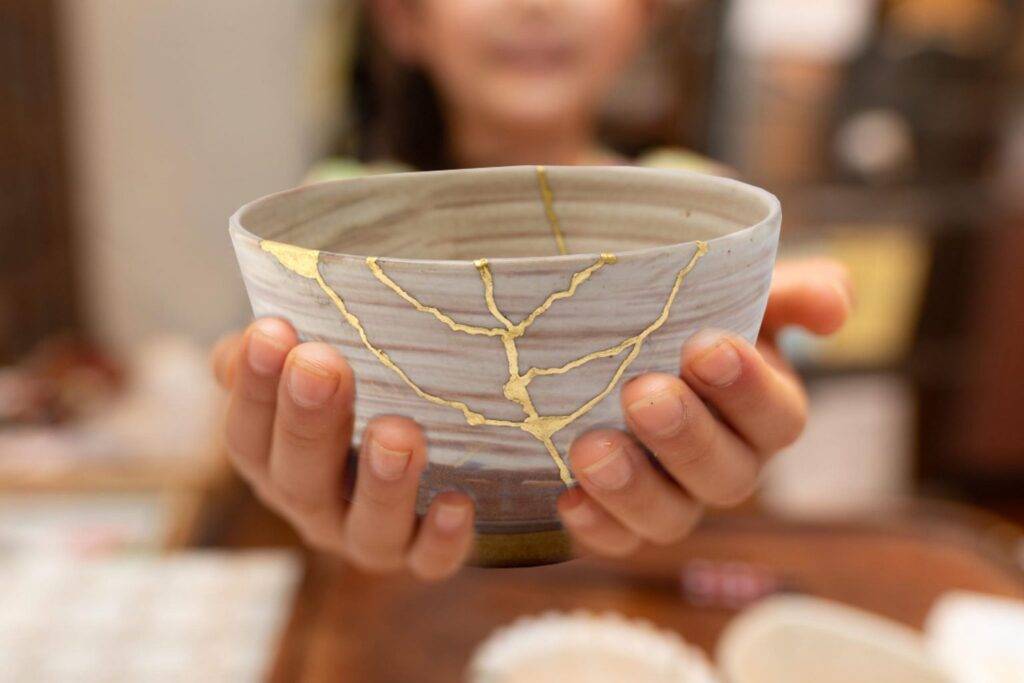
Rebuilding Trust After an Affair is Something You Don’t Have to Do Alone
Affair recovery is one of the hardest emotional challenges a couple can face. You don’t have to have it all figured out to begin therapy. You just need a willingness to look at the hurt, and a desire to move forward—whether that’s together or apart.
At our practice, we know that infidelity, addictions, and patterns of secrecy can create hopelessness and stuckness. At Individual & Relationship Counseling Associates, we work with couples and individuals navigating these painful injuries every day. But with the right support, new pathways can open. We believe that people can change, and that even the deepest relational wounds can be healed with care, courage, and connection. If you’re in Reno, NV, and facing the aftermath of an affair, couples therapy after infidelity can help you begin the process of emotional recovery after betrayal.
Our therapists are trained in Emotionally Focused Therapy and committed to helping couples heal and reconnect in the wake of deep pain.
If you’re ready to explore whether healing is possible for you, reach out to us for a consultation. We’ll answer any questions you have about how to rebuild trust after an affair.
¹ Kintsugi is the Japanese art of repairing broken pottery with gold, highlighting cracks rather than hiding them. It reflects the idea that healing and imperfection can become part of something even more beautiful and resilient.
Questions To Ask a Therapist Before You Start
How to Choose a Couples Therapist
Choosing a couples therapist is an important step toward strengthening your relationship — but how do you know which therapist is right for you and your partner? You may have searched for terms like “best relationship counseling near me” or “how to choose a couples therapist,” and now you’re looking at a list of options. How do you make an informed choice?
Starting couples therapy is a significant investment in your relationship. You want a therapist whose expertise aligns with your needs — someone who understands the challenges you’re facing and can guide you effectively.
A good couples therapist will typically offer a brief consultation so you can assess their approach and determine if they’re the right fit. To help you through this process, I’ve provided a list of key questions to ask when evaluating a potential therapist — along with guidance on what to listen for in their responses.
These questions fall into 3 essential categories:
- A therapist’s qualifications – Their training, experience, and credentials.
- Their perspective on relationship distress and wellness – How they understand and approach relationship challenges.
- Their therapeutic process – What working with them will look like, session to session.
Is a potential new couple therapist to find out if they’re right for you? Below is a guide to help you determine this and find the right relationship counseling near you. I’ve broken it into sections to make it easier to track.
Ask a Potential Therapist These Questions
Couple Therapist Qualifications
Experience and Professional Engagement
“Approximately what percentage of your practice over the last two years has been dedicated to working with couples?” And, “do you have a regular consultation process wherein you discuss your work?” These questions aim to assess the therapist’s dedication to couples therapy. A therapist applying techniques learned for individual therapy to the complexities of a couple’s dynamics can fall far short of what a relationship needs.
Specialized Couple Therapy Training and Qualifications
“What specific training in couples therapy have you undertaken?” Exploring their specialized training provides insight into their qualifications and dedication, facilitating the process of finding the right therapist for you. Prospective therapists should be able to describe application of a method of therapy relative to their training. An EFT Couple Therapist can describe their process in a detailed fashion.
“Do you have specific training regarding difficulties related to sexuality?” This is an important question for couples struggling with problems relating to sexuality to ask.
Feedback and Evaluation Process
“How do you provide feedback and evaluate progress in therapy?” This question allows couples to understand how the therapist assesses progress and navigates therapeutic milestones. A transparent feedback mechanism is vital for ensuring that therapy remains aligned with the couple’s goals and for making necessary adjustments to the therapeutic approach.
Couple Therapist’s Theoretical Orientation
Therapist’s Theoretical Orientation
“What theoretical perspective guides your work with couples?” It is essential that the therapist operates from a solid theoretical foundation, such as Attachment Theory, which is at the heart of Emotionally Focused Couple Therapy (EFT). The approach a therapist takes should be grounded in solid theory. Also, there should be a structured methodology to effectively address relationship distress.
Does the Therapist Understand When NOT to Do Couple Counseling?
“What are the Contraindications to Couple Therapy?” A prospective therapist should be clear about this. They should describe when the type of couple’s therapy they do might not be the best choice or should be approached with caution. Common contraindications follow: Severe mental illness and substance use disorders that interfere with participation. Misaligned agendas for therapy. Ongoing affairs that threaten a partner’s sense of security. Also, a risk of violence that prohibits vulnerability. In some cases, addressing the contraindicating issue (such as through individual therapy, addiction treatment, or safety planning) can make couple therapy like EFT a viable option later on.
Therapist’s Focus: Emotional Connection or Behavioral Contracts?
“How important is the emotional bond versus behavioral contracts in your approach to couple dynamics?” Herein, a therapist who emphasizes strengthening the emotional connection addresses the core issues of relationship distress effectively. The late Dr. Sue Johnson’s insight, “it’s about the bond, not a bargain,” poignantly captures the essence of couple therapy.
Perspective on Enhancing Communication Skills
“How do you work to enhance communication skills in your therapy sessions?” Ideally, the therapist’s approach should highlight the importance of fostering trust that your partner is available, responsive and emotionally engaged. By contrast, a focus on mere communication techniques can interfere with the depth of understanding in the relationship. “I statements” and similar “communication tips” don’t come online readily when intense emotion gets stirred. This is a very important distinction in finding the right therapist for you.
Couple Therapist’s Process
Expectations for Therapy Duration and Frequency
“What are your expectations for the duration and frequency of therapy sessions?” This question helps set realistic expectations for the therapy process. For example, you want to understand how long it might take to see improvements and how often sessions will occur. Therapy is a significant investment. It’s crucial for planning and commitment to the therapeutic journey that you know what to expect.
Strategies for Enhancing Connection Outside Therapy
“What strategies do you recommend for couples to enhance their connection outside of therapy sessions?” A therapist who offers practical tools, exercises and resources for couples to work on between sessions demonstrates a proactive approach to therapy. This can help accelerate progress by encouraging partners to actively engage outside the therapeutic setting.
Approach to Individual Sessions
“Do you conduct individual sessions with partners?” Generally, therapy should involve both partners, with individual sessions reserved for specific assessment purposes. This approach reflects the therapist’s commitment to treating the relationship as the central client. Further, you probably don’t have the right therapist for you if they don’t have a clear policy about how to treat informations shared during individual sessions!
Ensuring Impartiality
“How do you maintain impartiality in your sessions?” Asking this question probes the therapist’s strategy for navigating complex couple dynamics. Thereby, ensuring they view the relationship as an interconnected system. I think it’s so important to feel confident about a prospective therapist’s answer to this question. This is because the experience of therapist bias toward one partner is a primary reason clients cite for therapy “failing.”
How to Find the Best Couples Therapy Near You
If you’re looking for couples therapy in Reno, NV (or in your local area), here are a few tips to help you find the best therapist for your needs:
- Search using phrases like “how to choose a couples therapist,” “relationship counseling near me,” or “couples therapy Reno NV.”
- Look for therapists who specialize in relationship work and have advanced training — such as Emotionally Focused Therapy (EFT) or the Gottman Method.
- Prioritize therapists whose practice is focused on couples counseling — not general individual therapy.
- Ask for a brief consultation — this helps you assess their approach and whether it feels like a good fit.
- Consider practices like Individual & Relationship Counseling Associates in Reno where couples therapy is a core specialty.
How to Choose a Couples Therapist: Summary
Selecting the right couples therapist is a thoughtful process — and asking the right questions can help you choose a professional who aligns with your relationship goals. The questions provided here will give you insight into a therapist’s philosophy, methods, and approach, helping you determine if they’re the right fit for your needs.
While a basic search such as “relationship counseling near me” is a good starting point, refining your options is essential. Look for a compassionate, well-trained therapist who provides a clear process, focuses on emotional connection, and can effectively guide you and your partner toward a stronger relationship.
If you’d like to learn more about our approach to couples therapy, visit our Couples Counseling in Reno page or contact us for a confidential consultation.
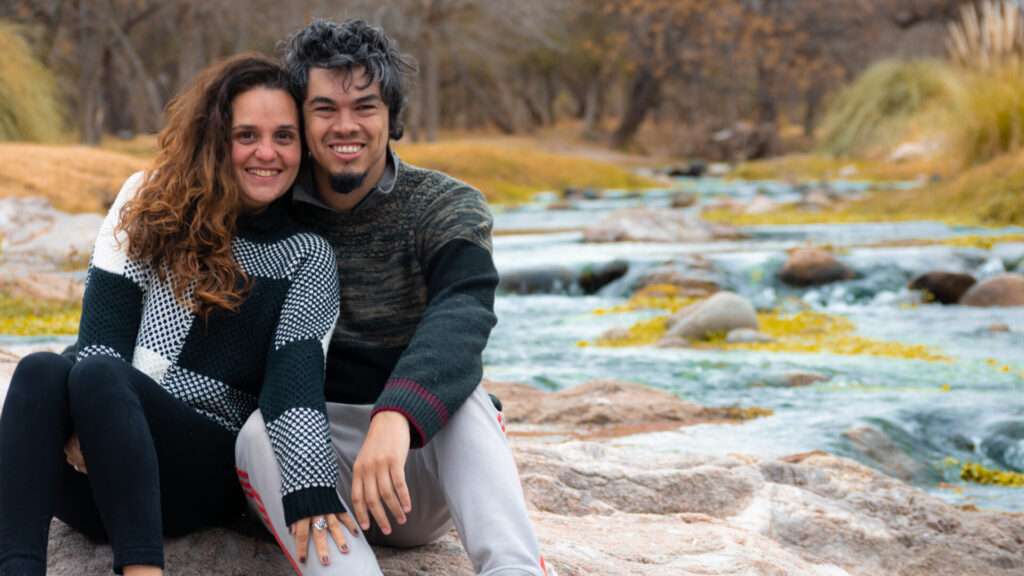
Secure Love by Julie Menanno: A Therapist’s Perspective
Why Secure Love Is a Great Read for Couples
Over the years, I’ve worked with many couples who struggle with recurring patterns of disconnection. Often, they come in feeling stuck, having the same arguments over and over, or feeling an unsettling distance between them. If this sounds familiar, Secure Love by a colleague of mine, Julie Menanno is a book I highly recommend.
What sets this book apart is its practicality. Julie, an experienced Emotionally Focused Therapy (EFT) practitioner, breaks down attachment theory into everyday, relatable struggles that couples experience—why one partner withdraws, why the other protests, and how these dynamics keep both feeling unseen and unheard. She offers concrete tools for shifting from reactivity to responsiveness, helping couples create a sense of emotional safety that leads to deeper connection.
Praise from Professionals & Readers
I’m not the only one who finds Secure Love an invaluable resource. It has received strong endorsements from leading voices in the field:
- Dr. Sue Johnson, the creator of Emotionally Focused Couple Therapy (EFT), calls it an essential guide to understanding and strengthening attachment in relationships.
- Lori Gottlieb, therapist and author of Maybe You Should Talk to Someone, describes it as a “practical, easy-to-understand guide” to fostering secure attachment.
Readers have pointed to the accessibility of this material, and I agree. For example, one review I read says, “Julie writes and explains things in a way that is easy to understand and incredibly helpful.” Another from Goodreads highlights the book’s impact, saying, “Menanno teaches you how to establish a secure attachment with your partner to create the bond you’ve been longing for.”
Key Insights from Secure Love
Julie provides a roadmap for creating security in relationships. Some of the most valuable takeaways include:
- Understanding Attachment Styles – How your attachment history shapes your relationship patterns, and what to do if you and your partner have different styles.
- Breaking Negative Cycles – Identifying the patterns that push you apart (like the classic pursuer-withdrawer dynamic) and learning how to reconnect.
- Developing Emotional Responsiveness – Tuning into your partner’s emotions in a way that fosters closeness rather than conflict.
- Creating a Secure Base – How to establish trust, safety, and emotional intimacy that lasts.
I see these patterns play out in therapy all the time. Many couples I work with struggle with the very issues Menanno describes—feeling unheard, stuck in cycles of defensiveness, longing for closeness but unsure how to create it. The tools in this book align very closely with what we work on in therapy, making it an excellent complement to attachment-focused couples counseling.
Why I Recommend This Book to My Clients
As therapists who specializes in Emotionally Focused Couple Therapy (EFT), my colleagues and I help couples move from frustration to connection by strengthening their emotional bond. What I appreciate about Secure Love is that it brings attachment science out of the therapy room and into everyday life.
Many clients find this book helps them better understand themselves and their partner, making it easier to apply the work we do in sessions. Sometimes, simply having language for what’s happening—realizing that a withdrawal pattern is not “coldness” but a way of managing distress—can be a breakthrough.
If you’re reading Secure Love and find yourself thinking, “Yes, this is exactly what we go through, but how do we fix it?”, therapy can take these ideas further. In counseling, we don’t just learn about attachment—we experience new ways of relating in real time, creating new emotional patterns that lead to lasting change.
Should You Read Secure Love?
I recommend this book for:
✔ Couples who feel disconnected and want to understand what’s going wrong.
✔ Individuals who want insight into their attachment style and how it affects their relationships.
✔ Those who struggle with conflict cycles and need practical strategies to shift toward secure connection.
If you’re looking for a great supplement to therapy for improving your relationship, Secure Love is a fantastic resource. It can even serve as a self-guided approach. But if you’re finding it hard to break old patterns on your own, couples therapy can provide the support, guidance, and real-time practice needed to create lasting change.
Want to Deepen Your Connection? Let’s Work Together.
If you resonate with the principles in Secure Love but need help applying them in real life, my colleagues and I can help. As EFT couple therapists, we guide partners in moving from disconnection to deeper connection, using attachment-based therapy to create lasting change.
👉 Schedule a consultation today and start building a more secure, loving relationship.
Meet Maddie Huntley, CSW-I, Therapist in Reno
Hi, I’m Maddie, a clinical social work intern born and raised in Northern Nevada. I’m a compassionate, strengths-based therapist in Reno dedicated to helping teens, young adults, couples, and individuals cultivate emotional well-being and resilience.
Whether you’re facing relationship challenges, managing stress, or striving to align your life with your values, I’m here to support you with warmth, curiosity, and respect.
My Approach: Maddie Huntley, CSW-I, Therapist in Reno
My therapy approach is rooted in humanist principles, emphasizing your inherent strengths and unique capacity for growth and self-discovery. I draw from a variety of evidence-based modalities to support your unique needs. By integrating different approaches, I tailor therapy to help you gain clarity, build confidence, and create meaningful change in your life.
The Perspective I Bring as a Professional
With a background in public policy, outdoor recreation, and health and human services, I bring a broad perspective to my work. I understand that personal challenges are deeply influenced by our environments, relationships, and lived experiences. My goal is to provide a safe and supportive space where we can explore your story together and develop practical tools to help you navigate life’s complexities with greater ease.
Supervision and Fees
I am currently practicing under the supervision of Cornelius Sheehan, LCSW and provide high-quality, client-centered care. My standard session fee is $120, and I offer a sliding-scale option to accommodate financial needs.
About Me Outside of My Therapy Work
When I’m not in the therapy room, I enjoy getting lost in a good book or exploring the mountains, deserts, and trails that make Northern Nevada such a special place.
Get in Touch
If you’re ready to take the next step and would like a consultation, I’d love to connect with you. You can reach me at:
📞 775-235-2205
🌐 www.csheehanjr.com
Or, you can schedule online here.
Meet Sarah Rosenbloom, MFT-I, NCC
Sarah Rosenbloom, MFT-I, NCC, Therapist in Reno
Individual and Relationship Counseling Associates in Reno, NV are very happy to introduce Sarah Rosenbloom, MFT-I, NCC, to our practice. Sarah brings a warm, collaborative approach to therapy, empowering individuals, couples, and families to explore their inner strengths and build healthier, more connected lives. For clients in need, Sarah also offers infertility support counseling.
About Sarah as a Therapist
Sarah believes that healing begins within and views therapy as a catalyst for uncovering the power we all have to grow and thrive. Using attachment-based and humanistic approaches, she creates a caring, non-judgmental space for clients to explore their challenges and discover solutions. Whether working with individuals, couples, or families, Sarah walks alongside her clients with compassion and curiosity.
My personal experiences with endometriosis and infertility have made me passionate about helping others – couples and individuals – with similar struggles. Experiencing fertility challenges can be so stressful and overwhelming, and can leave you feeling isolated and hopeless; it’s an important time to find support from others who truly understand. Through infertility support counseling in Reno, I can help you to navigate your options while also processing the intense feelings that surface.
As a certified Yoga Instructor, Sarah also integrates mindfulness and body-awareness techniques to support mental and emotional well-being. She has a special passion for helping clients navigate relationship challenges, infertility support counseling, and the complexities of family dynamics, always with a focus on fostering understanding and connection.
About Sarah as a Person
A Reno native, Sarah loves being part of the local community. When she’s not supporting her clients, you’ll find her volunteering, playing on local sports teams, or enjoying the city’s vibrant farmers’ markets. Sarah spends as much time as possible exploring the beautiful Sierras and high desert with her partner, two young children, and beloved dog. Her deep appreciation for nature and commitment to personal growth inspire her work as a therapist and in her everyday life.
Who Sarah Works With
Sarah works with clients aged 13 and older, as well as children within the context of family therapy. She specializes in:
- Relationship Concerns
- Infertility Support Counseling
She also provides support for:
- Co-parenting
- Divorce
- Family conflict
- Grief & Loss
- Marital & Premarital Counseling
- Infidelity
- Parenting
- Women’s Issues
Session Fee for Sarah
Sarah’s standard session fee is $120.
Individual & Relationship Counseling Associates tries to remove barriers to accessing therapy. We may be able to offer a sliding-scale fee reduction. This is done on a case-by-case basis with our Care Coordinator.
Get Started in Therapy with Sarah
If you’re ready to take the next step toward healing and connection, Sarah is here to help. At Individual and Relationship Counseling Associates, we’re dedicated to providing compassionate, high-quality care—and Sarah embodies that mission in everything she does. Call us at 775-235-2205, or fill out a contact form and our Care Coordinator will get you headed in the right direction!
Meet Karen McKinney, LCSW, LCADC-S
Meet Reno Therapist Karen McKinney, LCSW, LCADC
Licensed Clinical Social Worker and Licensed Clinical Drug & Alcohol Counselor/Supervisor in Reno, NV
Karen McKinney is a dedicated therapist in Reno, NV specializing in helping clients navigate anxiety, depression, and other mental health challenges. With over eight years of experience, Karen has supported individuals in understanding their emotions, building resilience, and creating lasting change.
Her areas of focus include:
- Anxiety
- Depression
- PTSD
- Addiction
- Other mental health challenges
Karen believes all behavior is a normal response to life’s challenges, and her empathetic approach helps clients feel seen and supported as they work toward healing.
Karen’s Approach to Therapy
Karen combines evidence-based therapies with a compassionate, strengths-focused approach to help her clients achieve meaningful growth. Her specialized training includes:
Emotionally Focused Individual Therapy (EFIT)
- Grounded in Attachment Theory, EFIT helps clients identify behavior patterns and regulate emotions.
- Supports long-lasting emotional well-being.
- Learn more about individual therapy with Karen here.
Eye Movement Desensitization and Reprocessing (EMDR)
- An effective therapy for addressing trauma, phobias, anxiety, depression, and PTSD.
- EMDR accelerates healing and transformation, supported by thousands of research studies.
Motivational Interviewing
- A strengths-based method that helps clients discover their internal motivation for change.
- Encourages self-awareness and confidence in achieving personal goals.
Karen’s therapeutic style is person-centered, creating a safe and empowering space for clients to explore their challenges and embrace their potential.
Why Karen Became a Therapist
Karen returned to school later in life to pursue her passion for helping others heal emotionally. She finds it deeply rewarding to witness clients:
- Gain clarity around their emotional patterns
- Build self-esteem and confidence
- Develop healthy coping strategies
- Create fulfilling, joyful lives
Karen understands the challenges of change but knows the rewards are well worth the effort. She is committed to supporting her clients every step of the way.
A Little More About Karen
Karen lives in Reno, Nevada, with her husband and two dogs. Recently, they purchased an RV and have been enjoying the stunning landscapes Nevada offers.
As a proud mother of three and grandmother of six, Karen values the roles she plays in her family. Her lived experience with addiction and mental health challenges allows her to connect with her clients on a personal level, offering empathy and understanding to their struggles.
Getting Started
Karen’s standard session fee is $150, and she currently accepts Hometown Health Insurance. Sliding scale fee reductions are available on a limited basis.
If you are struggling with anxiety, depression, or other mental health challenges, Karen would be honored to help you on your path toward healing and growth. Reach out today to schedule an appointment. 775-235-2205.
Meet Gina Bemis, LCSW
Meet Gina Bemis, Therapist in Reno
Supporting Adults, Teens, Children, and Couples Through Life’s Challenges
Hello, I’m Gina Bemis, LCSW, a therapist in Reno. I am a Licensed Clinical Social Worker at Individual & Relationship Counseling Associates in Reno. I take a collaborative approach with my clients. This means I work hard to understand their personal experiences, and help them work through challenges to achieve the progress that matters most to them.
Personalized, Evidence-Based Care
I draw on research-backed methods to address your specific challenges, tailoring each session to focus on practical tools and deeper insights that lead to meaningful progress. My approach is grounded in fostering a strong therapeutic relationship, empowering clients to build the skills and understanding needed for lasting change.
Modalities: A Comprehensive Toolbox
I use a variety of therapeutic modalities to best meet my clients’ needs, including:
- Emotionally Focused Therapy (EFT): Supporting couples and individuals in deepening connection and repairing relationships.
- Acceptance and Commitment Therapy (ACT): Promoting mindfulness and values-driven action.
- Eye Movement Desensitization and Reprocessing (EMDR): Helping individuals heal from trauma and distressing experiences. I have completed EMDR training and am actively working toward certification.
- Expressive Arts and Play Therapy: Encouraging creative expression for children and adults.
- Cognitive Behavioral Therapy (CBT): Identifying and reshaping negative thought patterns.
I have specialized training in working with PTSD, trauma, grief and loss, anxiety, and psychosis. Whether you’re seeking support as an individual, a couple, or as part of a family, I provide care that prioritizes meaningful growth and healing. Learn more about our Therapists in Reno.
A Rich Background in Social Work and Community Care
I have lived and worked in the Reno area for over 20 years and have been a licensed practicing social worker since 2003. My early career included volunteering at a hospice agency, where I supported individuals grieving the loss of loved ones. While completing my master’s degree, I co-facilitated a bereavement group with a local therapist, further deepening my skills in grief support.
For a decade, I worked as a state-employed social worker with diverse populations, including older and physically disabled clients. One of my most rewarding roles was helping clients remain in their homes as they aged. During my undergraduate studies, I had the unique opportunity to live in Guam, where I gained a deep appreciation for the Chamorro culture while completing my degree and internship. These experiences have helped me know the importance of seeing diversity, always taking a compassionate approach, and having a commitment to understanding each client’s perspective.
Let’s Get Started
If you’re struggling or simply looking to improve aspects of your life, I’m here to help. Contact us today to schedule an appointment and take steps toward creating a more fulfilling and balanced life. I look forward to supporting you on this journey.
Fees and Insurance: My fee is $150 and our office will provide you the necessary information, including an insurance superbill to pursue reimbursement. I am an in-network provider for Hometown Health Plan.
